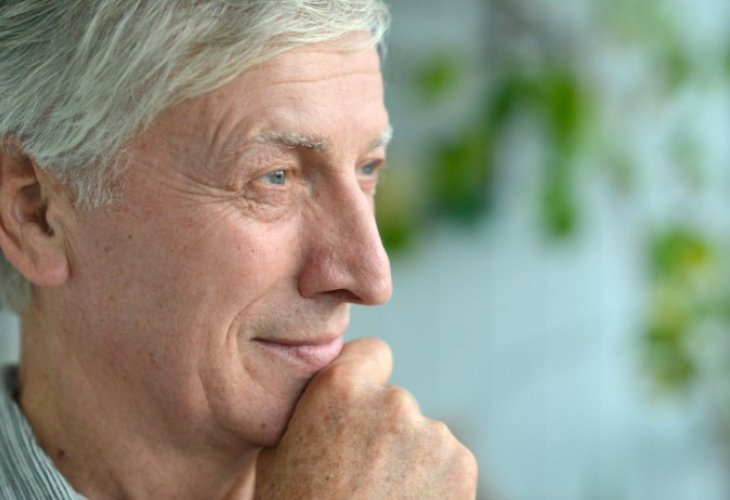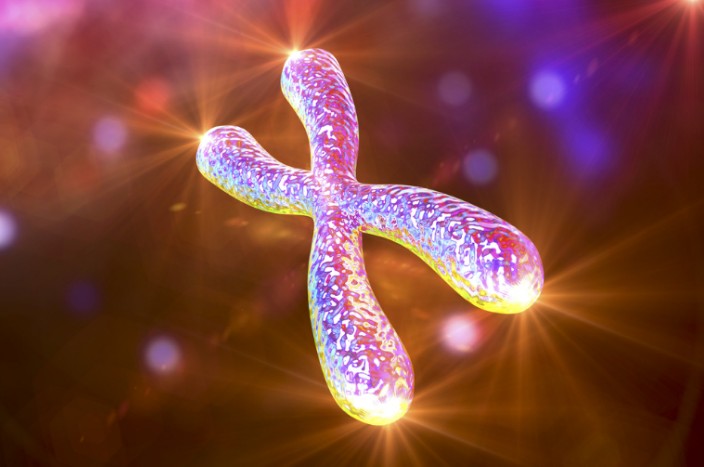What Happens to Our Cells as We Age?
Why can't I keep up with the grandkids like I did with my children? It's all about the telomere, a tiny region at the end of each cell in the body.
 (photo: shutterstock)
(photo: shutterstock)At the end of our cells, there is a small region that gets shorter over time, and with it, my ability as a grandmother declines to do what was trivial for me years ago as a mother.
Outsiders won't understand this, perhaps only someone whose telomeres are shortening at a rapid pace..
Once, making dozens of double sandwiches with chocolate (four layers in each sandwich) while pouring hot cocoa was a trivial task for me. However, today, when ten toddlers aged three and under gather around Grandma at six-thirty on a holy Shabbat morning requesting the same things (and perhaps handwashing and trips to the bathroom), or ask to start a soccer game with Grandma as the goalie in the middle of the living room, then my legs and shoulders send a flashing reminder - there's a lady here challenged by telomeres.
Telomeres are the end regions of chromosomes that protect against cell death, and they shorten with age. The shorter the telomere, the quicker the cell will die. Moreover, from a biological standpoint, cell regeneration decreases with age. Stem cells diminish in number and lose their ability to divide and renew, thus reducing cell functionality. Intercellular communication also slows with age, in other words - cells become less communicative with each other, and this also affects us.
 (photo: shutterstock)
(photo: shutterstock)
And it's not just the cells. I've long claimed there's not enough social activity for women in middle age and beyond, a kind of "retirement group" for refreshing the gray matter cells and enhancing social connections. Another phenomenon that occurs with aging is the over or under-expression of mitochondrial DNA, which can lead to diseases such as Alzheimer's or other degenerative diseases. This phenomenon is also one of the reasons for different genetic diseases in those born to older mothers..
Yes, it turns out that everything starts in the womb and birth, including telomere length and its various impacts. Sudden maternal stress during pregnancy can affect the biological clock of the fetus's body cells by shortening fetal telomere length, potentially leading to diseases associated with early aging. Short telomeres have also been found in people with depression or post-trauma.
In a German study involving 700 pregnant women, stress factors during pregnancy were measured, saliva samples were taken from the mothers, and right after birth, umbilical cord blood was collected for genetic evaluation. The results showed that babies born to mothers who experienced sudden stress during pregnancy had shorter telomeres, even when the mother's telomere length was normal. In contrast, in cases of chronic stress not only present during pregnancy, the mother's telomeres were short, while the baby's length was normal. Interestingly, female infants had, on average, longer telomeres.
I'm happy to age and thank Hashem for every day and hour I've been granted. I have friends who hide behind their age, playing hide and seek with it, and I ask why not look in the mirror daily and feel "and I was to myself as new"?
There's No Point in Equality
In Israel, a minimal percentage of fathers take paternity leave, while in Sweden, fathers stay with their children for at least three months. Swedish law defines a particularly long paid parental leave, including several months where both parents are entitled to take parental leave together. Additionally, each parent takes three months separately. For twenty years, due to the low utilization of paternity leave by fathers, Swedish law has defined a specific quota of days for fathers, gradually extended, and about a year ago, it was expanded to three months.
Recently, I received an email about a Swedish-Israeli photography exhibition called "Swedish Fathers on Parental Leave" and "Fatherhood Through the Lens". The exhibition documents fathers who chose to stay with their children for at least six months and examines how their relationships with their children and families were impacted by this, and how the whole society is affected by fathers choosing to be with their children.
It sounds truly interesting, but the article included a particularly challenging sentence for me: "The exhibition opened a series of discussions on the topic of equal parenting". And here, the daughter revolts - why equal? There's no point in equality. The gifts of pregnancy and birth, for example, were granted by Hashem only to women, so where's the equality? Maybe in the future, we'll be able to create an artificial womb, and then the experience of pregnancy and birth will be taken from women, but our hands, the women's, are still extended. The refreshing phenomenon of the growing involvement of the father in the gentle burden of raising his infants isn't connected to promoting an agenda of gender blurring, at least not in our school.

